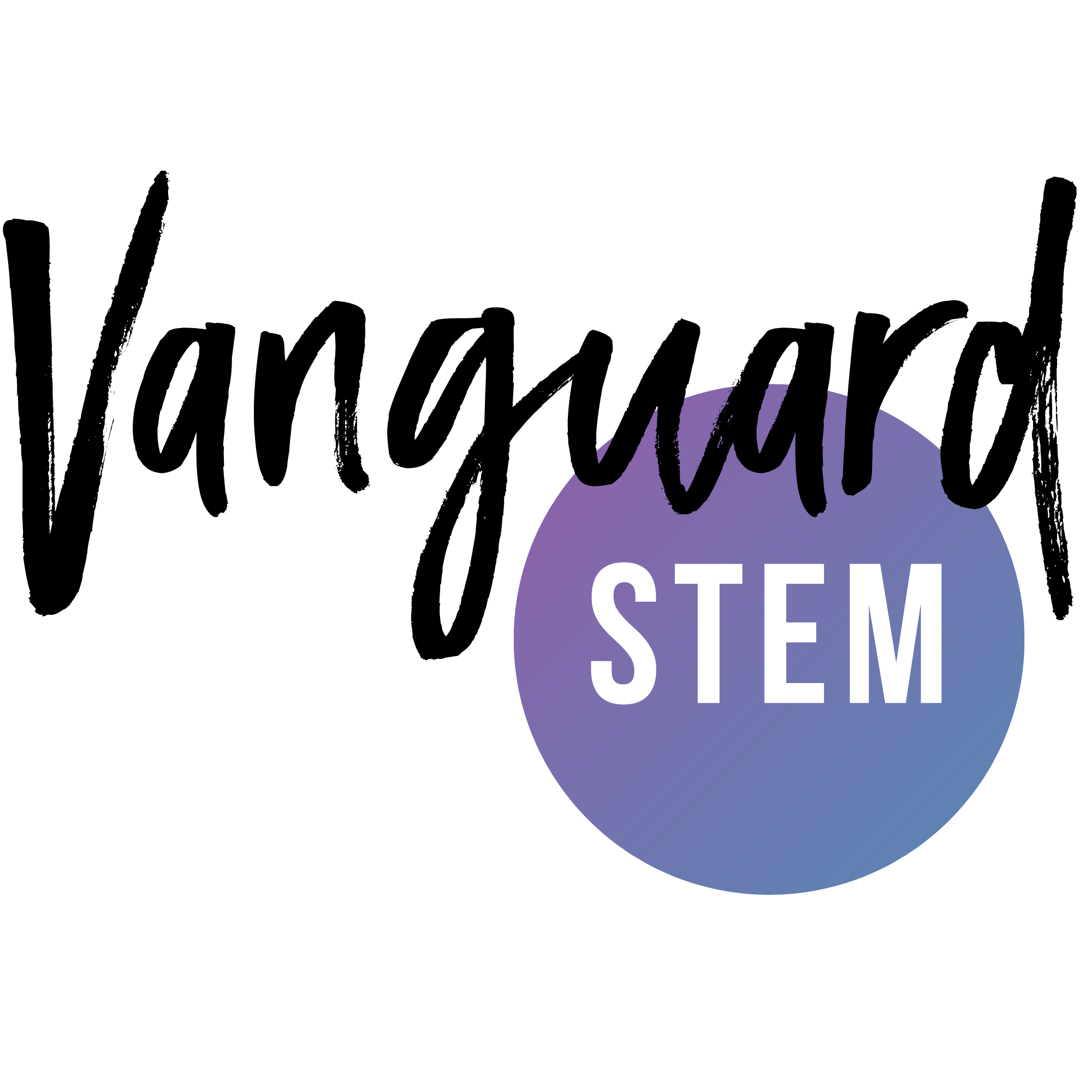Black Histories, Black Futures: A special #BHM series celebrating Black women from other disciplines who are committed to improving the STEM ecosystem.
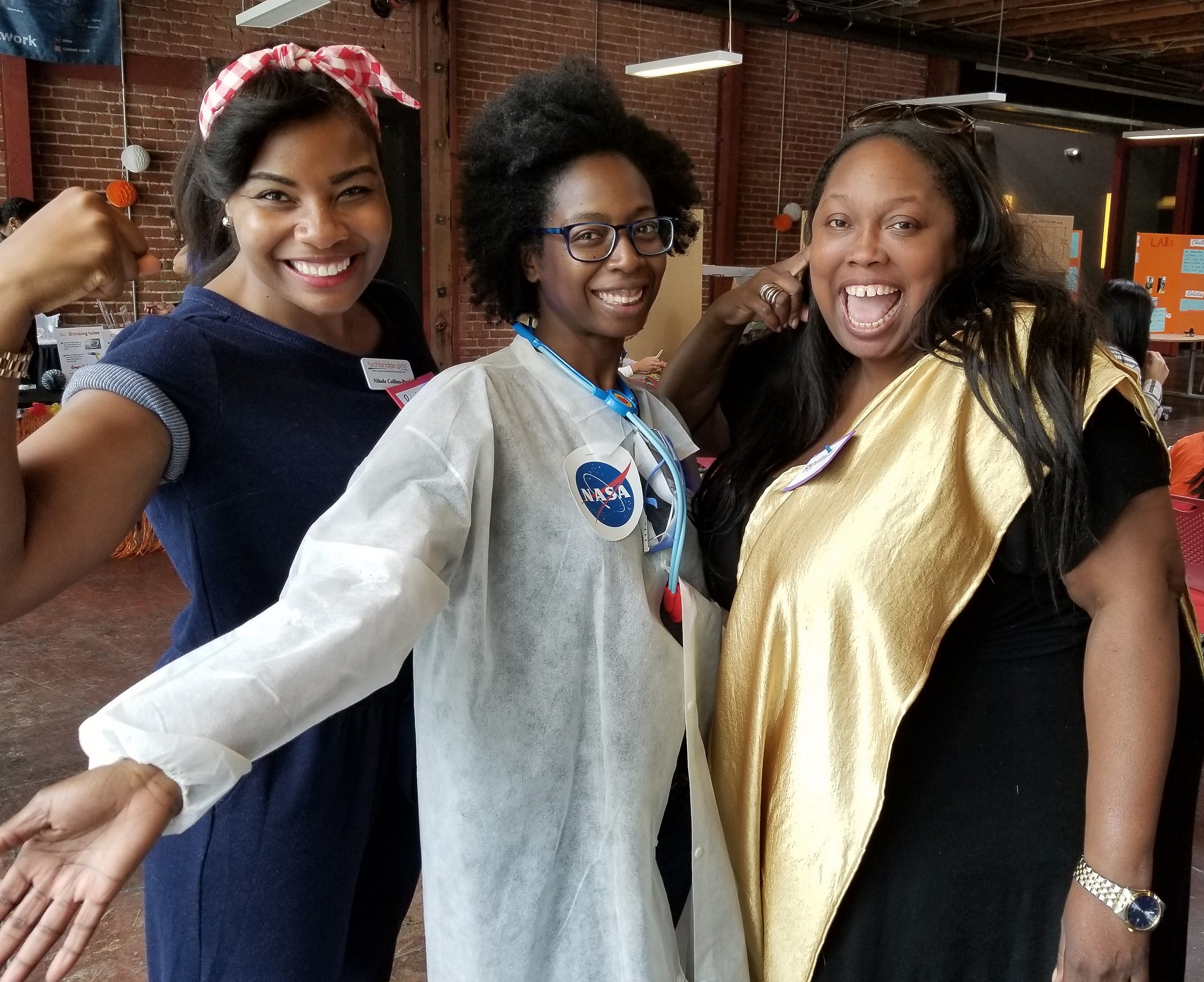
Descendent from Black Histories, Building Black Futures
In #VanguardSTEM’s peer-reviewed publication, we assert that when we “co-create and engage with STEM content we create another universe of possible futures.” This year, in honor of the freedom fighters who came before us and in recognition of the futures that Black revolutionary thinkers continue to build, #VanguardSTEM is observing Black History month by celebrating Black women established and upcoming, whose work has helped pave the way towards a more equitable STEM enterprise. Every Friday in February we will publish a profile of a Black woman transforming STEM without a degree in a STEM field. We want to invite folx from a variety of disciplines into our hyperspace to discuss how our histories inform the futures we envision.
Our hope is that new, different and liberatory STEM interventions can continue to evolve from the freedom-seeking lineage from which we ourselves drew inspiration.
But it doesn’t end there! As the saying goes, children are the future — that’s why we’ve partnered with Techbridge Girls to highlight their students every Wednesday this month with #GOCinSTEM features through our #WCWinSTEM campaign. Stay tuned this month to learn more about the young people who are already shaping the future of STEM.
And with that, allow us to introduce you to the CEO of Techbridge Girls, Nikole Collins-Puri, a social justice visionary, strategist, advocate and mentor who has committed her life to unleashing the potential of untapped communities.
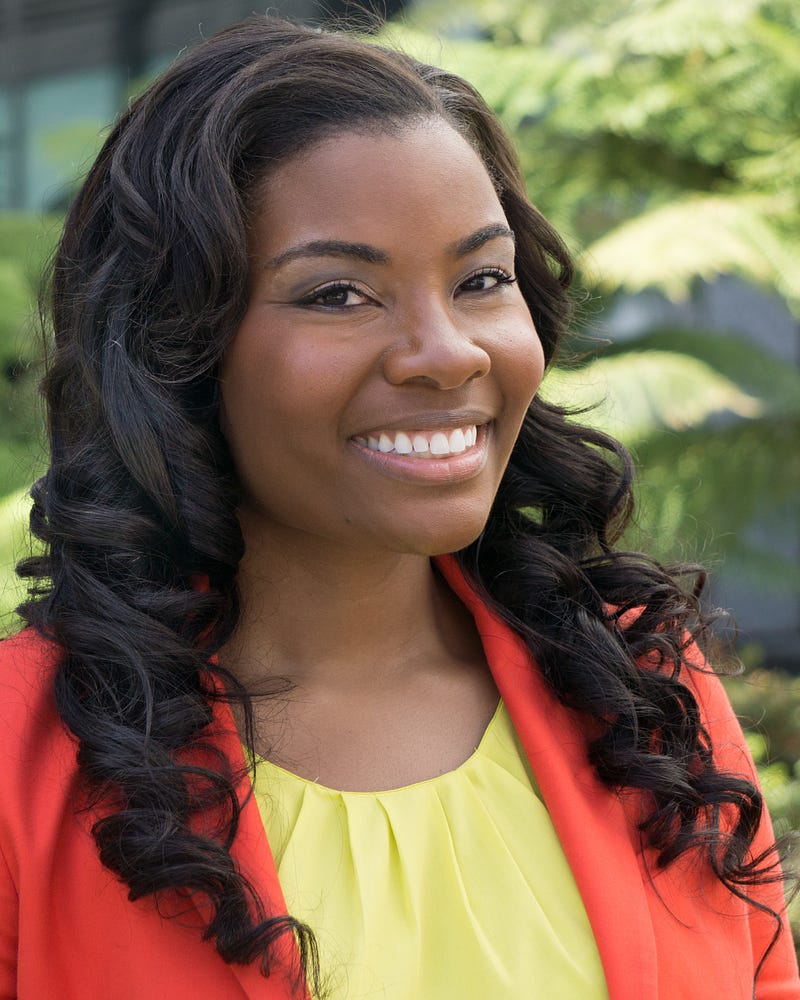
Where did you go to school?
- B.A. Political Science and Government, University of South Florida, Tampa Florida
- M.A. Public Administration, Baruch College, City University of New York, New York, NY
What do you do right now and how did your background equip you to build better futures for BI[W+NB]POC in STEM?
I studied political science with the hope of going to law school so I could change policies and systems for my community. As I was waiting to transition to law school, I landed an internship at AT&T that changed my perspective of the power of industry and shaping social norms, and creating access for communities. Ironically, my internship led to a 10-year career that started off bringing Digital Subscriber Line (DSL) into U.S. households and ended with leading Diversity, Equity, and Inclusion strategy for the company’s largest department. That journey grounded my leadership and fueled my passion. That foundation led me into a path where I could make change without a law degree but for systems (education, economic) that were critical to my communities.
After my work with AT&T, I deepened my understanding of education policy and philanthropy so that I understood all the systems that could prevent or propel my community forward. My career path was not a straight line. Still, it was the perfect combination to help me understand existing inequities through the lived experience, to learn about the systems that perpetuate the barriers impacting our girl’s persistence toward STEM and how investment can propel solutions that will dismantle the oppressive systems that are preventing the full brilliance of our communities from shining. At Techbridge Girls, I get to do all of this in one job, which makes me walk in a room with experience, knowledge and a solution at my fingertips.
I deepened my understanding of education policy and philanthropy so that I understood all the systems that could prevent or propel my community forward.
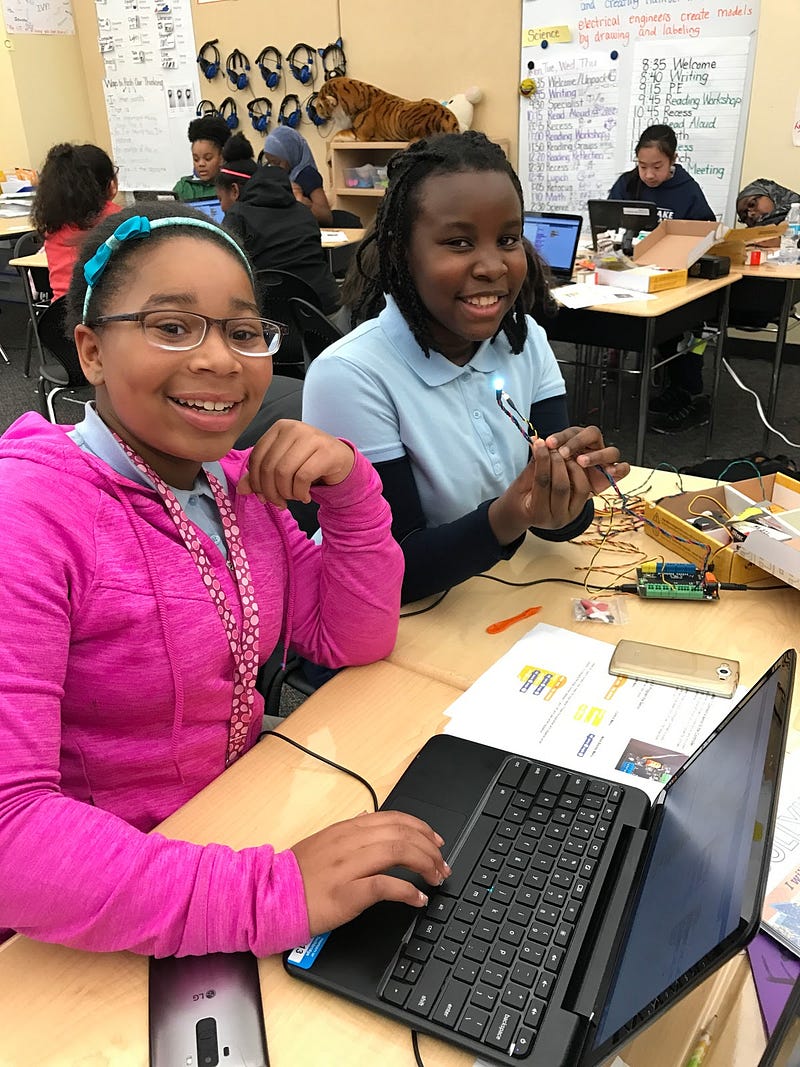
What made you choose to engage STEM fields?
I decided to become the CEO of Techbridge Girls (TBG) because it was the perfect combination of my skills, interests and passion. Spending 10 years in the tech industry, working to ensure equitable policies for Black and brown students to providing resources to grassroots organizations making real-change in their communities was a perfect fit. TBG’s mission is to create access to equitable STEM education that centers our girls* experience, culture, and brilliance so they understand they belong in this field from an early age and can thrive in it once they get there. TBG provides a space for girls to own STEM versus waiting for an invitation to be part of it. Our work is focused on the ecosystem (educators, role models, families) around our girls because we know girls have never been the issue in pursuing STEM. We create this space by equipping educators so they have the tools and practices to support this atmosphere of belonging, which will fuel a girl’s* their pursuit into the field.
Techbridge Girls provides a space for girls to own STEM versus waiting for an invitation to be part of it.
I deeply care about girls and women of color. I want our brilliance to shine and to do so with safety, care and appreciation; so having that passion through the context of STEM is really exciting. TBG’s work motivates me because I believe that STEM can become an equalizer when it is seen as an economic and social justice imperative. When you let girls thrive in these fields, not only do they create a better future for themselves, but they are creating a better world for us all.
I want our brilliance to shine and to do so with safety, care and appreciation; so having that passion through the context of STEM is really exciting.
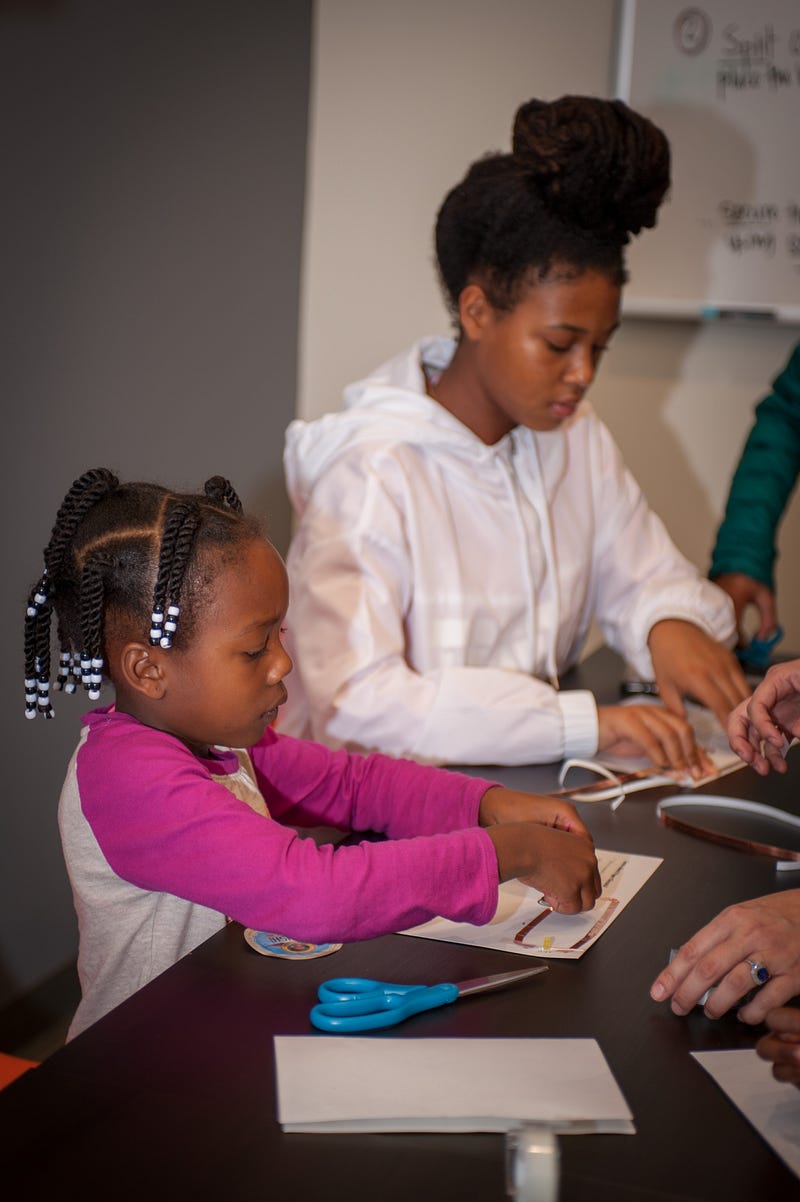
What’s one piece of advice you wish you had when you started your journey?
You can only be your best self when you allow your whole self to show up. If you constantly try to conform to other people’s standards, it is impossible to be your full self. If your whole self cannot show up, then your best self can’t shine. Your brilliance is fully tapped when your authenticity is present. Many of us are not walking in our greatest potential because we don’t allow our full selves to show up. I don’t believe it’s because we don’t want it to; it’s because we are constantly navigating a society that doesn’t allow us to.
What advice do you have for other folx who don’t have STEM degrees and want to contribute to building a more welcoming, just and equitable STEM enterprise?
STEM is all around us. Even if you don’t have a STEM degree, you will have to live in a world created, driven, and dominated by science, technology, and engineering. This is our new reality, and no matter what degree you have, it is essential to understand and operate in a STEM world. As STEM continues to evolve, we learn how it is interdisciplinary. STEM does not exist without humanities, arts, and literature, making every degree path essential to the field.
STEM does not exist without humanities, arts, and literature, making every degree path essential to the field.
How has the COVID-19 pandemic affected your thoughts about how BI[W+NB]POC form their STEM identities and interests, if at all?
COVID-19 has reinforced our work at Techbridge Girls and affirmed our relevance and strategic direction. The communities that we serve did not need a pandemic to show us the inequities they face daily. COVID-19 just shined a light on it for the rest of the world to believe it and have some urgency to do something about it. I hope that the level of priority, investment, culture shift, and awareness that we see during COVID-19 stays at the “pandemic level” so that we can see transformational change in the communities that we serve. We must address these inequities so our girls* can contribute and lead this STEM revolution forward.
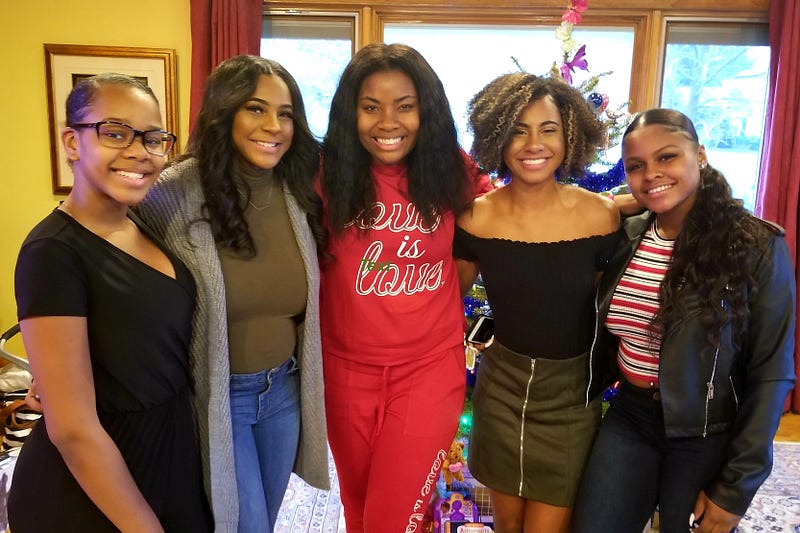
Do you have any woman of color in STEM sheros? Who and why?
Dr. Kizzmekia Corbett — she recently spoke at our Techbridge Girls 20th Anniversary Gala and now we get to see her every day on the news leading the charge for the COVID-19 vaccine. She is smart, cool, and fearless.
Why do you think it’s important to highlight women and non-binary people of color in STEM?
It’s important to highlight women of color in STEM because they show our Techbridge Girls what is possible, that they belong and they don’t need to be invited to this place called STEM but they own it already and just need to bring their brilliant selves to it.
What is your hope/vision for Black futures as it relates to your work?
I hope that Black brilliance, culture and liberation are valued, elevated, affirmed, and acknowledged as a necessity to humanity. If our “future” could embrace this understanding, then I believe all the rest will fall into place.
*TBG welcomes all girls and gender expansive youth! We provide space for cis girls and trans youth, gender non-conforming and/or non-binary youth who experience(d) girlhood as a part of their journey.
This article was originally published on February 5, 2021 on VanguardSTEM.com as part of our #FutureFridays series.
If you enjoy our original content, consider donating to our parent not-for-profit, The SeRCH Foundation, Inc., to help support this work.
